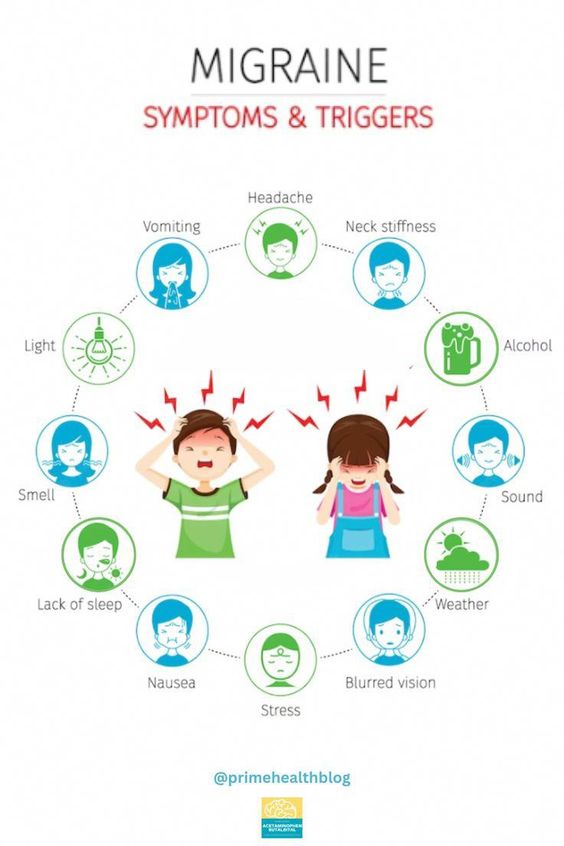Migraines are more than just severe headaches; they are debilitating neurological events that can cause intense pain, nausea, sensitivity to light and sound, and even visual disturbances. Understanding how to treat migraines effectively can significantly improve the quality of life for sufferers. Here's a detailed look into current migraine treatment options and strategies for managing this often misunderstood condition.
Understanding Migraines
Migraines typically present as throbbing or pulsing pain on one side of the head, though both sides can be affected. The pain can last from hours to days and can interfere with daily activities. While the exact cause of migraines isn't fully understood, factors like genetics, environmental triggers, and neurological changes are thought to play a role.
Types of Migraine Treatments
Acute Migraine Treatment
These treatments are aimed at stopping a migraine attack once it starts. They work best when taken early in the attack:
Over-the-counter (OTC) Medications: Drugs like ibuprofen, aspirin, or acetaminophen can help alleviate mild migraines. Combination drugs with caffeine can enhance effectiveness.
Triptans: Prescription medications like sumatriptan and rizatriptan are designed to block pain pathways in the brain and are highly effective in treating moderate to severe migraines.
Ergots: These drugs, such as ergotamine and dihydroergotamine, are most effective when taken soon after the migraine starts, though they are less frequently used due to side effects.
Anti-nausea Medications: Medications like metoclopramide and prochlorperazine are used to treat nausea and vomiting associated with migraines.
Preventive (Prophylactic) Treatments
For individuals who experience frequent migraines, preventive treatments can reduce the frequency and severity of attacks:
Beta-blockers: Medications like propranolol are often prescribed to prevent migraines by relaxing blood vessels.
Antidepressants: Tricyclic antidepressants like amitriptyline can be effective in preventing migraines, even for people without depression.
Anti-seizure Medications: Drugs such as topiramate and valproate can reduce the frequency of migraines by stabilizing brain activity.
Botox Injections: Approved for chronic migraines, Botox injections around the head and neck can block pain signals and reduce the number of days migraines occur.
Neuromodulation Devices
Neuromodulation devices are a newer option in migraine treatment. These non-invasive devices deliver electrical or magnetic pulses to specific nerves, which can reduce or prevent migraine pain. Popular devices include the Cefaly headband and gammaCore device, which target the trigeminal nerve.
Lifestyle and Behavioral Treatments
Non-medication approaches can also be crucial in managing and preventing migraines:
Diet and Trigger Management: Certain foods, alcohol, caffeine, and stress can trigger migraines. Keeping a migraine diary can help identify and avoid these triggers.
Regular Exercise: Low-impact exercises such as yoga, swimming, or walking can help reduce stress, which is a common migraine trigger.
Sleep Hygiene: Maintaining a regular sleep schedule can prevent disruptions that might trigger migraines.
Stress Management: Cognitive-behavioral therapy (CBT), relaxation techniques, and biofeedback can help manage the emotional and physical stress that can lead to migraines.
Emerging Treatments
There are a number of new treatments on the horizon, offering hope for more effective migraine relief:
CGRP Inhibitors: These drugs, such as erenumab and fremanezumab, are monoclonal antibodies that block the calcitonin gene-related peptide (CGRP), a molecule involved in migraine pain pathways. These medications are specifically designed to prevent migraines.
Lasmiditan: A newer drug class known as ditans, like lasmiditan, is used to stop migraines without causing blood vessel constriction, making it safer for people with cardiovascular conditions.
When to Seek Medical Help
While mild migraines can sometimes be managed at home, it's important to seek medical help if:
You experience frequent or severe migraines.
Over-the-counter medications are not effective.
You develop new or different symptoms, such as vision changes or speech difficulties.
Your migraines interfere with daily life.
Your healthcare provider can help tailor a treatment plan that addresses your specific needs and symptoms.
















